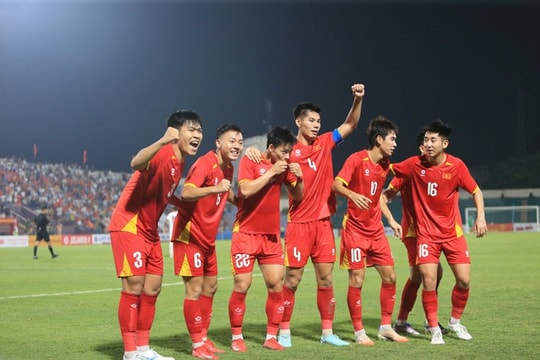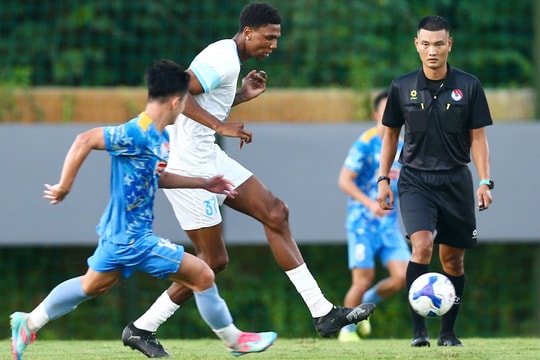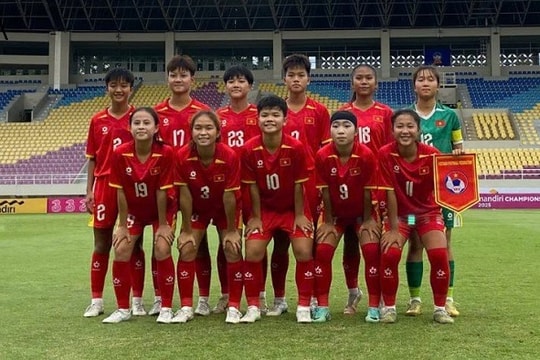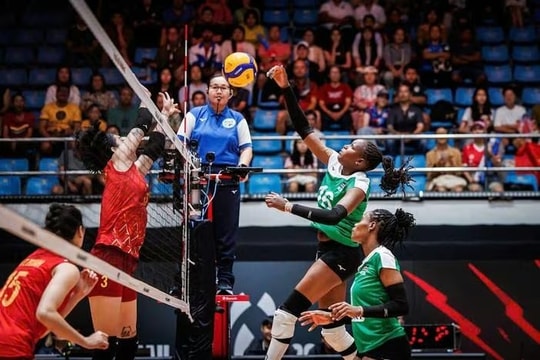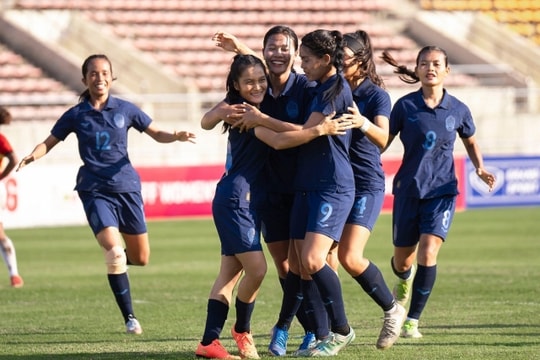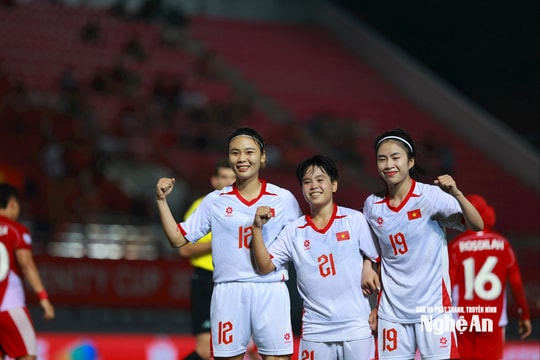Indonesian President's visit to the US: Many hidden ambitions
(Baonghean.vn) - The first visit to the US by an Indonesian head of state in the past decade shows many hidden ambitions as the archipelago is facing new pressures on maritime security and wants to build a new type of partnership with the US.
Indonesian President Joko Widodo's first visit to the US since taking office more than a year ago has attracted special attention from regional and international media. In the context of changing regional structures and global environments, it is inevitable that the US and Indonesia will adjust their strategic partnership in a new way. That is also one of the main goals of Mr. J. Widodo's visit to the US this time.
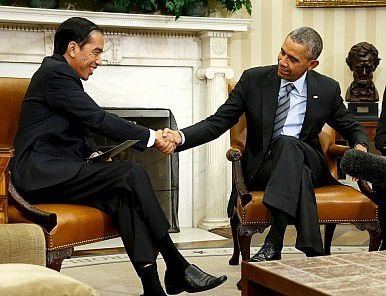 |
| Indonesian President Joko Widodo holds talks with US President Barack Obama. Photo: Internet |
In a joint statement issued on October 26 after talks between US President Barack Obama and his Indonesian counterpart Joko Widodo at the White House, the two leaders acknowledged the need to strengthen and promote the US-Indonesia comprehensive partnership, emphasizing cooperation in the economic and energy sectors, in combating climate change, counter-terrorism, and other regional and global issues. Observers say that strengthening cooperation with the world's number one power will help Indonesia address immediate and long-term challenges.
First and most obvious is the economic field. Recently, the global economic recession has caused the largest economy in Southeast Asia to suffer. The value of the domestic currency Rupiah has fallen sharply compared to the USD. Although the new cabinet of Mr. J. Widodo has always committed to ensuring foreign investment sources and welcoming investment, economic policies tend to be protectionist.
Indonesia also missed out on joining the TPP even though the US is Indonesia’s largest textile market, accounting for 36% in 2014. Therefore, through this visit, Indonesia hopes to achieve an investment commitment worth 20 billion USD through cooperation with 19 US companies in various fields.
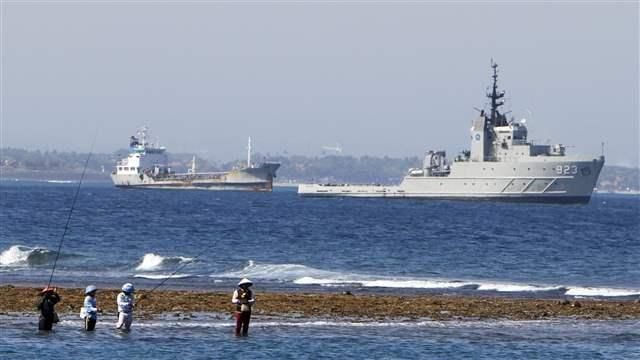 |
| Indonesia shifts defense priorities to the sea. Photo: Internet |
This has great significance for the plan to boost the economy and improve social security that President Widodo's government is carrying out. In particular, on this occasion, the Indonesian leader had the opportunity to make a clear statement showing that the country has a serious intention to join the Trans-Pacific Partnership (TPP) agreement that the US and 11 other partners have completed negotiations. This is clearly an immediate benefit for the economy of the country of 250 million people.
In addition to economic benefits and opportunities, ensuring national security, including maritime security, is considered a core priority that the Indonesian Government wants to receive support and assistance from the US. One of the important results of the Indonesian leader's visit to the US this time is that the two sides signed a memorandum of understanding on maritime cooperation, including elements: maritime defense, marine resource management, and maritime infrastructure. This is considered a very notable move in the context of Indonesia pursuing a "global maritime axis" strategy.
Since taking office more than a year ago, Mr. J. Widodo has put forward many remarkable strategies to enhance Indonesia's position, in which the idea of turning Indonesia into a "global maritime axis" has received special attention from regional and international public opinion. This is not only a vision to bring Indonesia back to the position of the world's largest archipelago country but also a guiding doctrine, a set of upcoming development roadmaps for this country.
Based on five pillars: maritime culture, marine resources, maritime infrastructure and connectivity, maritime diplomacy and maritime traffic safety, Indonesian officials expect the new strategy to be a force to protect regional security and the country's legitimate interests. According to observers, Indonesia's "global maritime axis" strategy is placed in a pragmatic foreign policy, focusing on promoting immediate economic and national security interests.
This policy could move Indonesia comprehensively, closer to Western countries such as the US and Japan, first in the economic field and then in the defense field. President J. Widodo's visits to developed powers in the past year have reflected this.
Experts say that the success of this ambitious maritime doctrine will depend on whether Indonesia can carry out basic tasks such as: coordinating the security of one of the world's longest coastlines? And to address these challenges, one of the important factors is the need for external support, specifically from major countries, especially those with interests in maritime security in the Asia-Pacific. Among them, the United States cannot be ignored. More than ever, the United States pays special attention to the security issues of the Asian region, in the context of China's increasing influence in the region, especially disputes in the East Sea.
In addition to partners such as Singapore and the Philippines, the US now considers Indonesia an important new partner in Southeast Asia. Cooperating with Indonesia, the US will have an additional "arm" to deal with a rising China. US President Barack Obama acknowledged that cooperation in the maritime field is the key to developing a deeper bilateral relationship with Indonesia. In the opposite direction, Indonesia can fully take advantage of US support to enhance the position of the largest economy in Southeast Asia, ensuring safety to develop maritime strategy. It seems that the "handshake" with the US brings many benefits to Indonesia, not only immediate benefits but also long-term goals./.
Thanh Huyen
| RELATED NEWS |
|---|


